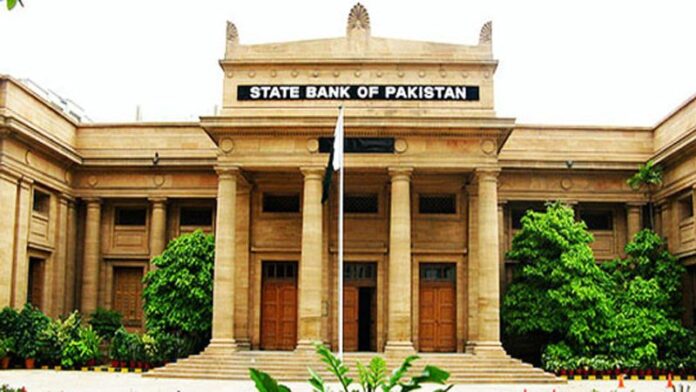ISLAMABAD: The Cabinet on Tuesday approved the revised State Bank of Pakistan (SBP) (Amendment) Bill 2021 to ensure its sixth review of the $6 billion Extended Fund Facility (EFF) gets cleared by the International Monetary Fund’s (IMF) executive board on Jan 12, paving the way for the disbursement of about $1bn tranche.
Sources said that the Cabinet division presented the agenda with regard to ratification of the decisions including the SBP Amendment Bill, 2021, taken by the cabinet committee for disposal of legislative cases (CCLC).
It is pertinent to mention here that the Cabinet has deferred the Finance (Supplementary) Bill 2021 till Thursday after objections raised by coalition partners.
They said that the Ministry of Finance proposed a number of amendments in line with international best practices while also taking ground realities in Pakistan into account.
“By facilitating domestic economic stability, the amendments will help support sustainable growth and avoid repeated bonds and busts that have characterised Pakistan’s past and led to painful consequences in terms of higher inflation, higher poverty and lower growth,” they said, adding that overall, the amendments balance the provisions of necessary operational and financial autonomy of the SBP with a new mechanism for enhancing transparency and strengthening accounts.
Most specifically, the amendments have six key purposes included clearly define the objectives of the SBP to improve its accountability, outline functions in line with these objectives, provide necessary financial resources to help achieve its objectives, strengthen the functional and administrative autonomy, increase transparency in operations, strengthen governance, and enhance the central bank’s accountability by strengthening oversight functions and increasing reporting requirements.
Sources said that the amendment identifies domestic price stability as the primary objective of the SBP followed by financial stability and support of general economic policies of the government.
The clear specification of objectives in this manner will make the SBP more accountable for achieving them.
In addition, it would help the SBP to prioritise its policy decisions appropriately to ensure sustainable economic growth in Pakistan. There is strong international evidence that countries with an independent, accountable and transparent central bank have lower and more stable inflation over long periods of time, which in turn lays the foundations for sustainable growth.
Conversely, international experience has repeatedly shown that countries that prioritise growth at the expense of price and financial stability are not able to sustain growth and have repeated boom bust cycles as well as rapid economic growth followed by a financial crisis.
Further, in order to achieve these objectives, the amendments suitably align the SBP functions and collate them under a new section. Given the inflationary nature of government borrowing from the central bank, the amendments propose to exclude provisions related to government borrowing as well as the quasi fiscal operations of SBP.
The SBP will, however, continue to extend re-finance facilities to financial institutions with appropriate checks and balances. The lender of last resort function of the SBP has been further strengthened to enable it to provide a temporary liquidity facility to banks against appropriate collateral.
Likewise, the amendments seek to provide the SBP with sufficient financial resources to achieve its objectives. A central bank’s accountability can be jeopardised if it cannot continually avail itself of sufficient financial resources to fulfill its mandate.
A key element of the functional independence of central banks is protection of its officials for action taken in good faith. Provisions for protection are not only a common practice in other central banks but also exist in other domestic laws.
The amendments therefore propose to add a provision for the general protection of SBP officials for all actions undertaken in good faith.
In addition, it has been proposed that the Monetary and Fiscal Coordination Board be abolished as its terms of reference overlap with the work that has been assigned to the monetary policy committee under the existing Act and such a mechanism for coordination goes beyond provisions in the Acts of other central banks.
Instead, a new mechanism for coordination is being proposed between the finance minister and the governor, under which they would establish a close liaison and keep each other informed of matters that jointly concern the MoF and SBP.
To increase transparency in SBP’s operations and strengthen its governance, the amendments prescribe qualification and experience requirements, tenure, conflict of interest and disqualification criteria for all appointments, including the directors on the board of SBP, member of monetary policy committee, the governor and the deputy governors.
To introduce a collegial decision making process, the amendments propose to establish an executive committee at the central bank consisting of the governor and the deputy governor.
This committee will be responsible for formulating policies related to the banks’ core functions as well as those related to administration and management matters excluding those matters falling in the purview of the monetary policy committee or the board of directors. All policy related decisions will be taken by this committee.
Moreover, in order to enhance accountability and transparency, the amendments strengthen provisions related to accountability of the SBP to the parliament, constitution of an audit committee, designation of a chief internal auditor and appointment of an external auditor.
In addition, the oversight role of the central bank’s BoD has been strengthened and its scope has been broadened by giving them explicit oversight over the affairs and functions of the bank along with the power to supervise the management, bank administration, operations, and right of access to all activities.
























